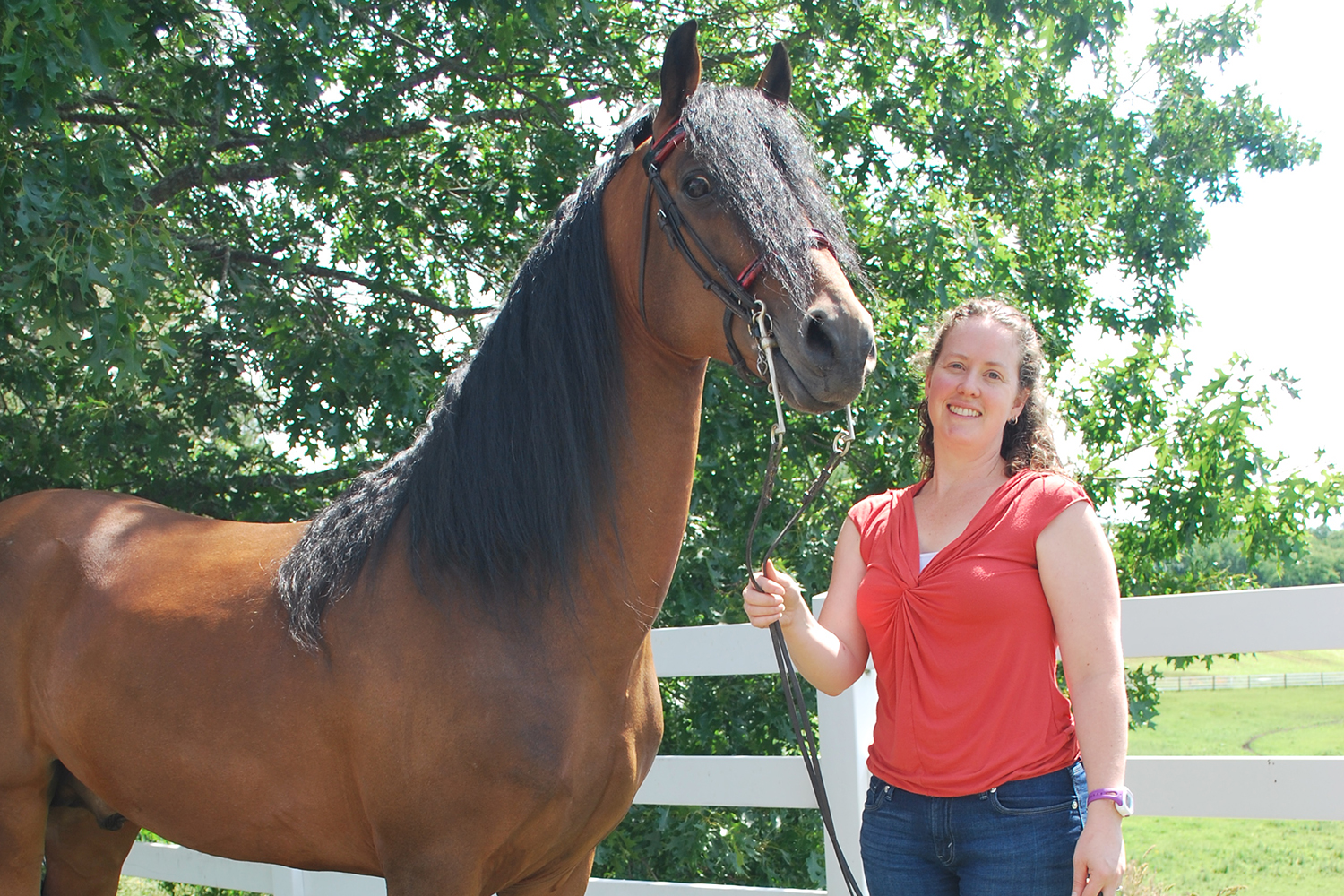By Jason M. Sheldon.
In the Department of Animal Science, Sarah Reed is researching molecular and cellular biology related to muscle growth and development in horses and sheep. While focusing on livestock, she hopes her work can also help address common human health challenges related to aging and nutrition.
The equine research Dr. Reed conducts analyzes younger and older horses to ascertain how muscle growth, maintenance and loss occur. She is investigating the role of cytokines, proteins involved in the immune response, in muscle. The effects cytokines have on satellite cells, which are the stem cells responsible for skeletal muscle formation, is unclear. Skeletal muscles connect to bone, control movement and play a role in metabolism. Satellite cells become mostly inactive in older animals, but can become functional again in response to certain stimuli, such as exercise, with cytokines directing cells to proliferate and differentiate in both beneficial and harmful ways.
Reed wants to know how cytokines and satellite cells interact in aged horses. Horses over fifteen are considered geriatric, yet with an average life expectancy of twenty-five to thirty years, many older horses continue to be used for athletic purposes, such as riding and competitions. As they age, however, older animals experience muscle loss, which affects their ability to remain healthy and useful as active animals. There is also a heightened risk of injury along with muscle loss. Reed aims to better understand how inflammation may drive muscle loss in aging horses by studying which molecules produce which responses to determine how cytokines are directing satellite cells. This may provide ways to avoid muscle loss and extend the industrious years of horses. Given the wide age range of the animals residing in the UConn Horse Barns, she has been able to study weanlings, yearlings and adults to follow changes in muscle over time.
Reed believes that knowing more about how muscles react to particular conditions and revealing the underlying mechanisms may aid aging human populations given similarities in muscle loss.



